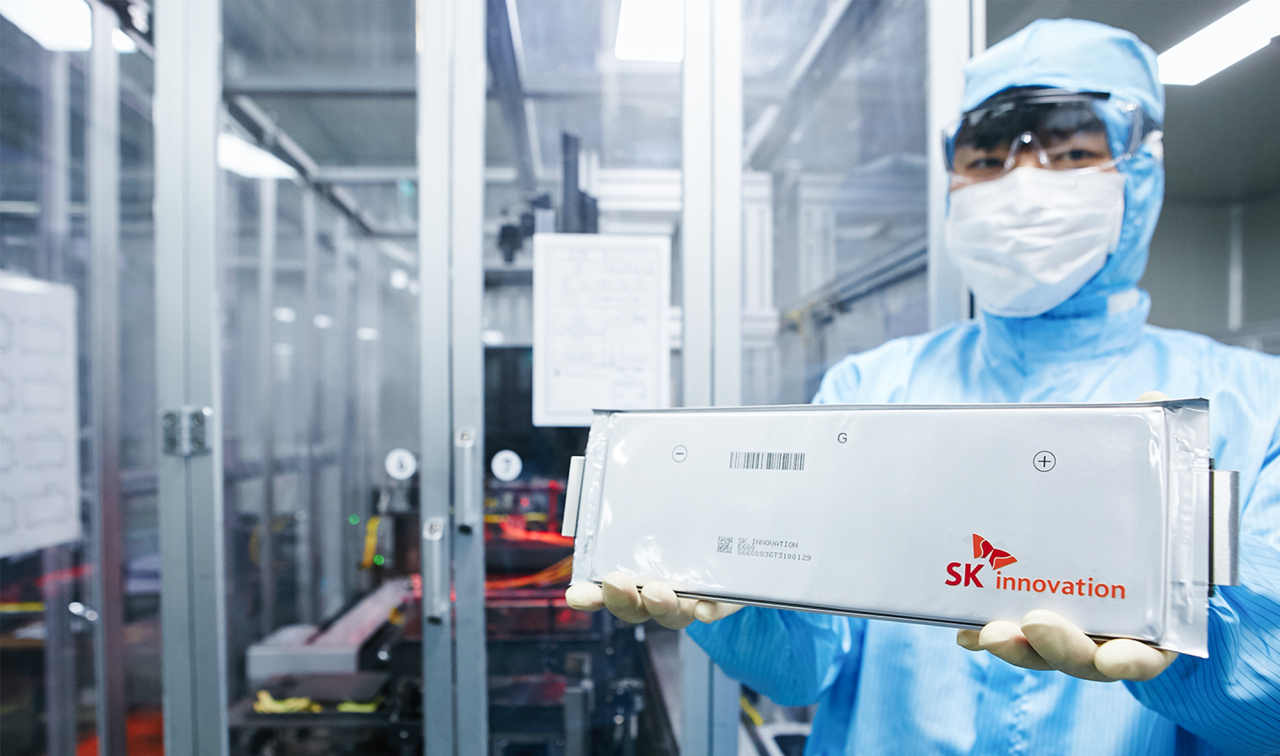 |
An SK Innovation official holds out the company’s battery cell. (SK Innovation) |
For the late SK Group Chairman Chey Jong-hyun, the 1970s oil shock was a wake-up call, a moment of reckoning that a petrochemical company cannot and should not let its destiny be dictated by the price of oil.
When SK Group acquired domestic petrochemical company Yukong in 1980, which later became today’s SK Innovation, Chey had a clear vision that reaped rewards for decades.
“Countries all over the world are trying to develop alternative energy after suffering from the 1970s oil crisis. Rather than remaining as a petrochemical company, Yukong must change into a comprehensive energy company that encompasses coal, gas, electricity, solar energy, nuclear power, and battery systems,” said Chey in 1982 at a meeting with Yukong executives.
From this very meeting, SK Innovation’s journey into the battery business began.
Under Chey’s command, Yukong became the first petrochemical company in Korea to establish a battery research facility. Set up in Daedeok, Daejeon, in 1985, it later became the SK innovation Institute of Technology Innovation. Yukong poured in 10 billion won ($8.6 million) for the research facility.
After beginning the development of electric vehicle batteries in 1991, Yukong developed EV batteries that could offer a driving range of approximately 120 kilometers on a single charge in 1993.
Yukong in 1997 changed its name to SK Corp. In the 2000s, SK Corp. manufactured batteries for hybrid vehicles and pure EVs, keeping up with automakers developing EVs.
In 2007, SK Corp. carved out its energy and chemical business and established SK Energy. In 2010, SK Energy loaded its batteries on Korea’s first-ever commercial pure EV, the BlueOn.
In 2011, SK Energy changed its name to SK Innovation to fully commit to the battery business. Now, SK Innovation stands as one of the world’s leading EV battery makers. In the first half of this year, SK Innovation deployed 1.7 gigawatt-hours of EV batteries, ranking sixth in the world, according to market tracker SNE Research.
SK Innovation aims to mass produce NCM (nickel cobalt manganese) batteries that contain 90 percent nickel starting 2022 for third-generation EVs that need to travel more than 500 kilometers. Also, the company plans to boost its annual production capacity to 100 gigawatt-hours by 2025 from the current 20 gigawatt-hours.
By Kim Byung-wook (
kbw@heraldcorp.com)





![[Exclusive] Hyundai Mobis eyes closer ties with BYD](http://res.heraldm.com/phpwas/restmb_idxmake.php?idx=644&simg=/content/image/2024/11/25/20241125050044_0.jpg)
![[Herald Review] 'Gangnam B-Side' combines social realism with masterful suspense, performance](http://res.heraldm.com/phpwas/restmb_idxmake.php?idx=644&simg=/content/image/2024/11/25/20241125050072_0.jpg)

